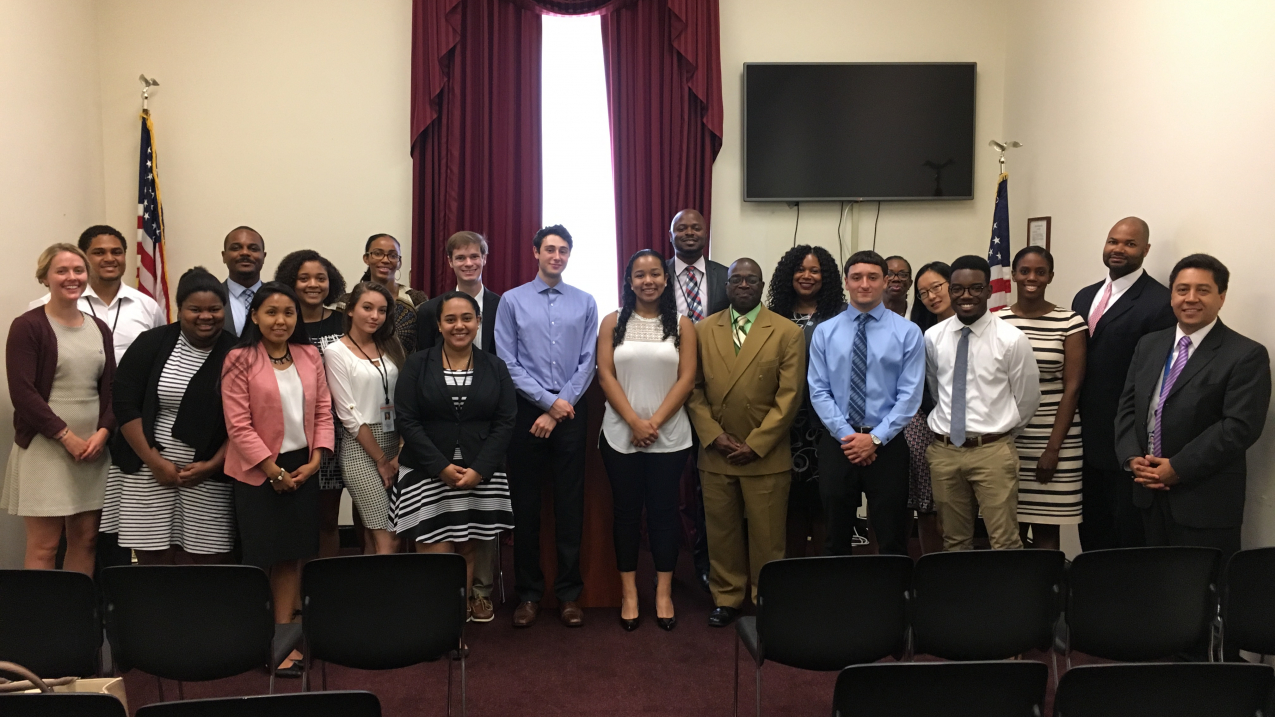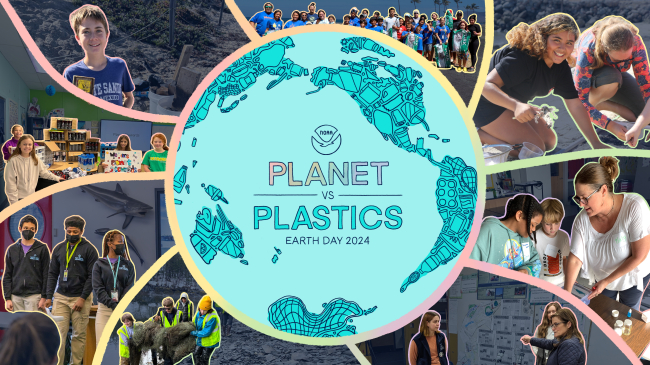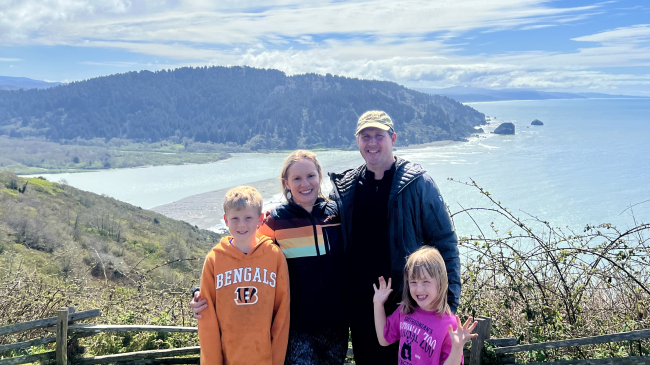On July 26th, 2017, NOAA's Diversity and Professional Advancement Working Group hosted a discussion on The STEM Gap: Millennials as Agents of Change at the the Rayburn House Office Building on Capitol Hill. The event brought together students and professionals from diverse backgrounds to discuss barriers and opportunities for pursuing careers in science, technology, engineering, math and policy.

NOAA's Diversity and Professional Advancement Working Group hosted a discussion on The STEM Gap: Millennials as Agents of Change at the the Rayburn House Office Building on Capitol Hill. Attendees included NOAA Educational Partnership with Minority-Serving Institutions undergraduate scholars, Sea Grant Knauss Marine Policy Fellows, and Capitol Hill Interns. (Image credit: NOAA)
Participants included undergraduate students funded by NOAA's Educational Partnership Program with Minority-Serving Institutions (EPP/MSI) who are currently conducting internships with NOAA in the Washington, D.C. area. EPP/MSI scholars were joined by Sea Grant Knauss Marine Policy Fellows and Capitol Hill interns from the Tri-Caucus, which includes the Congressional Hispanic Caucus, Congressional Black Caucus, and the Congressional Asian Pacific American Caucus. Dr. Jamese Sims, GOES-R Algorithm Engineer with NOAA Satellites, and Dr. Lonnie Gonsalves, Research Ecologist with NOAA's National Ocean Service, moderated the discussion.
NOAA has prioritized diversity and inclusion as an agency objective and this roundtable served as an opportunity to further the discussion with Tri-Caucus staff, NOAA scientists and current interns and fellows. Participants engaged on these important topics and lent invaluable insight regarding how education and training support has led to success stories for minorities in STEM.
Makeda Okolo, organizer and Congressional Affairs Specialist at NOAA, designed an event that prompted thought provoking conversation on the topics of STEM education, diversity and inclusion, engaging millennials, and needs for strengthening the STEM pipeline. Interns from the Hill and NOAA shared their concerns and ideas for recruitment and advancement of minorities in STEM fields.
“Being from the Bronx, there is no formal way of communicating between the government and my community on what [STEM] opportunities are available,” said Elio Valdez, Congressional Hispanic Leadership Institute Intern. “There needs to be some way to disseminate that information more effectively so the people of these communities will know what is available.”
NOAA scholar Imani Wilburn noted, “Science books are so expensive. You can fail a class because you don't have $200 for the science textbook. There needs to be some policy to help STEM majors with those costs. I know people who have changed majors because of the cost of the books."
This is the first time EPP/MSI scholars and their policy-focused counterparts on Capitol Hill have met to discuss these topics. "It's days like today that make me proud to be a member of this distinguished group of public servants," reflected Dr. DaNa Carlis, Meteorologist with NOAA Research and Co-Chair for NOAA’s Diversity and Professional Advancement Working Group.
Media contact Makeda Okolo, 202-482-5935
Congressional Affairs Specialist



